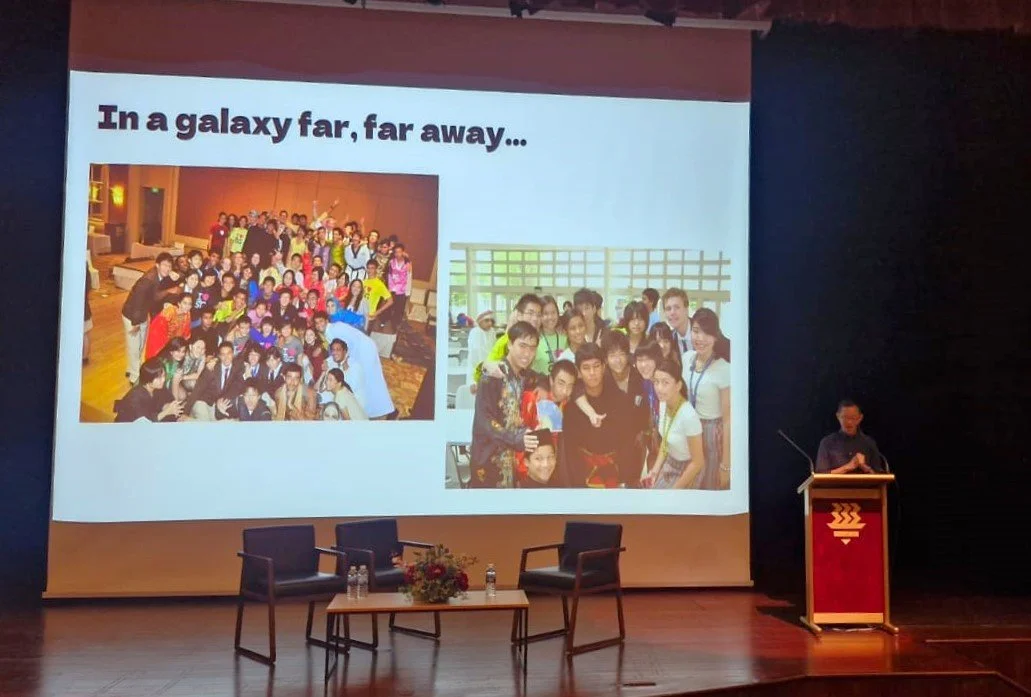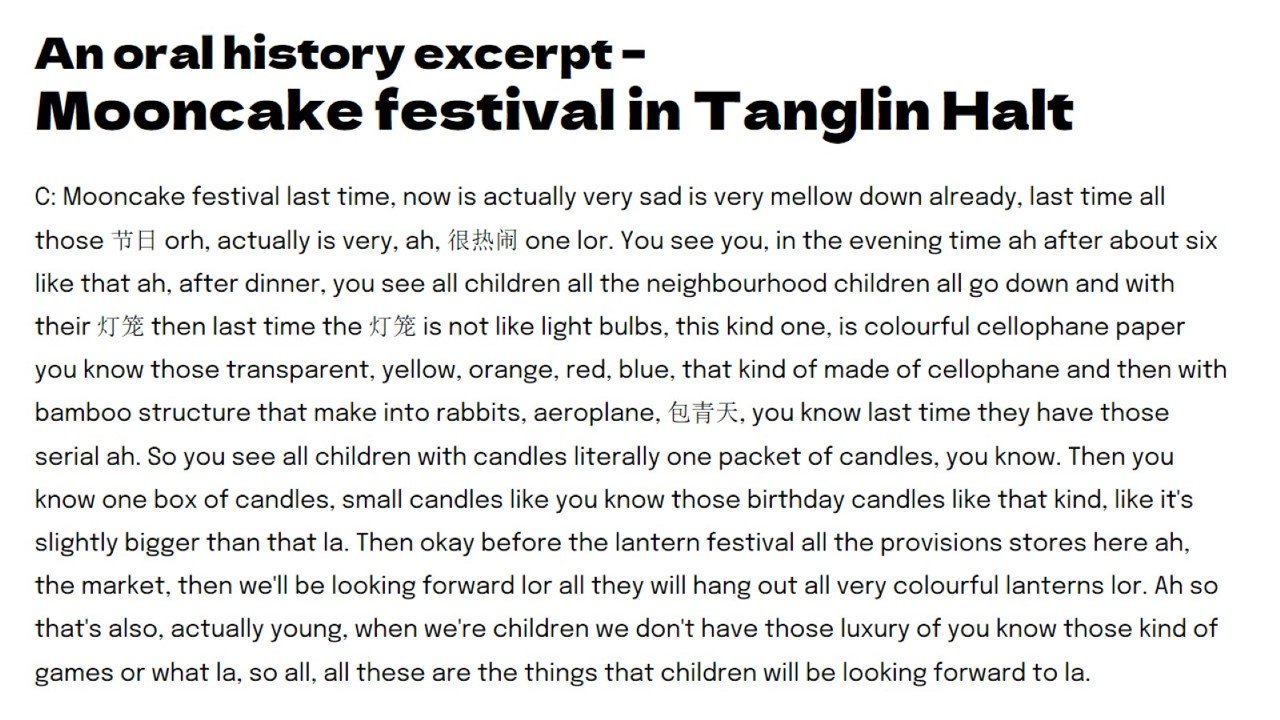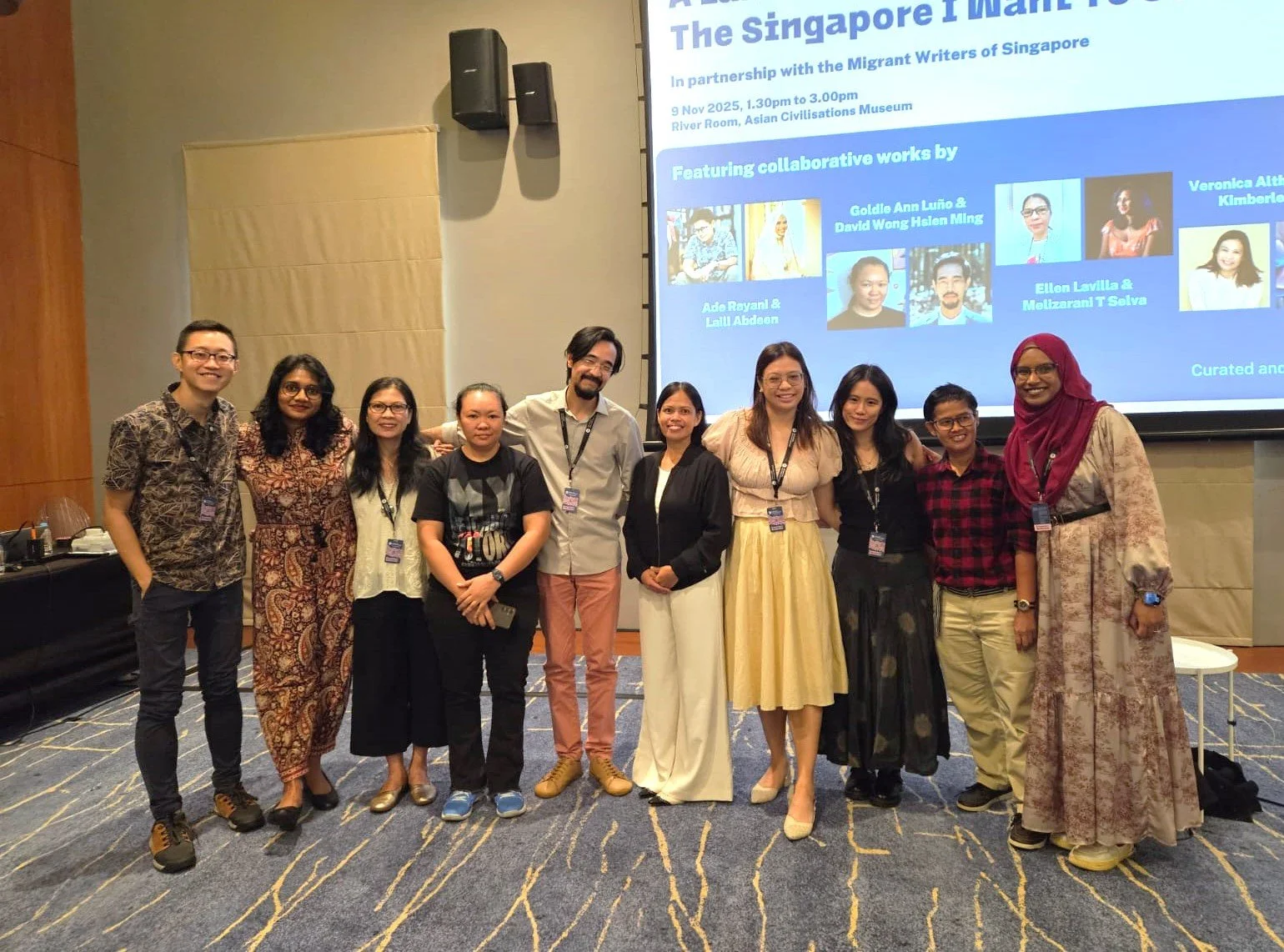You Have To Love People: Student Leaders Network
This week, I was invited to Hwa Chong Institution to speak to the Student Leaders Network, comprising Secondary 4 students from 11 schools across Singapore. Doing this in the middle of a packed Singapore Writers Festival was never on my 2025 bingo card, but it really gave me a chance to think about the “why” — especially for an audience that reminded me so much of my younger self. Here’s what I came up with!
Though I didn’t go to school here, I have some wonderful memories of this campus – which I visited at your age for a leadership camp like this one.
The year was 2010. We danced to Bad Romance in the evenings and snuck out for ice creams at King Albert Park. I remember heading home after midnight to continue typing out poems on my phone. Most were rubbish, but some made it into my first book, which came out the next year when I went to junior college.
Very little of what I learnt at that camp has stayed with me, and I don’t expect you to remember much of what I say this morning either. In fact, when your teacher first called me with this invitation, I was baffled. What could I, a writer, possibly have to say to a room of accomplished young leaders like yourselves?
If you’re here, you’ve probably come to recognise leadership when you see it: in the captain urging her team forward on the basketball court, or the founder whose startup is hustling to its first million. Look hard enough among yourselves, and I’m sure you’ll find leaders who are making their presence felt in all of these fields, from the judo mat to the science lab to the concert hall.
Now what could be more different from these than the mental image of a writer sitting alone at his desk, with his head in the clouds?
I hope to do two things with my time today. First, to shed a bit of light on the mysterious work that writers do, and perhaps dispel some myths about the writing life. Second, to try and draw some connections between the questions I’ve found myself asking as a writer, and the ones you have no doubt already started to ask as you step up into the leadership positions that you hold.
֎
So, to that first question – what is it that writers do?
Obviously, writers work with words, which are our medium as paint is to the painter. But if you take a look at the diagram I’ve put up on the screen, you’ll see that a good deal of the writer’s work takes place before and after putting pen to paper. These are not only essential parts of the process, but also where I think some of the most interesting questions are asked.
Let’s start with what happens before writers begin writing. Here’s how the American writer Henry David Thoreau puts it, in his grandiose way: “how vain it is to sit down to write when you have not stood up to live”. Sounds great, but not super useful as a guide! Here’s how I break it down.
First, reading. Every writer will tell you that they were first moved by someone else’s words. Having experienced the magic of reading – that which turns the flimsy page into a magic carpet, transporting you out of your skin – you start to crave that power for yourself. What if I too could whisk my reader into another space and time?
So you try to learn the magic, and pick up a second book, then a third. But as you read, another impulse comes on top of the first. That is, the impulse to join the conversation you find among different authors with different ways of seeing the world. Or, more precisely, different ways of seeing the things that you care about.
This is how it happened for me. Though I was always an avid reader, what persuaded me to pick up the pen was discovering the work of other Singaporean writers as a teenager, and how they were writing about a city I was just getting to know.
At fourteen or fifteen, I thought of myself as a bit of an urban explorer. The Circle Line was being built at the time, and every chance I got, I would slip out after school and take the train to explore each new neighbourhood suddenly at my doorstep. Walking around Holland Village to the beat of Alvin Pang’s poem, “Shades of Light in Holland Village”, or hopping on bus 197 to read Koh Jee Leong’s poem “Going Home From Church on Bus 197”, something clicked. These writers were describing people and places I recognised. The stakes were suddenly real, and I found myself drawn into a conversation that I’ve never quite left.
You see, while reading offers everyone an escape, what it offers the writer is community – a chorus of voices with similar obsessions that call you into their midst, like the group of diehard friends you look for in the canteen every lunchtime. You find yourself joining in, because you can and because you care. And sometimes, if you’re lucky, this imagined community become your real friends, pals who become indispensable to your real life.
֎
The other important part of what happens before writing is a looser collection of things I’ll call research. What does this look like to the writer? Thankfully, nothing like what you’re used to for Project Work. The writer isn’t trying to boil down people’s views to a data point or recommendation. Instead, what the writer wants to do is craft an invitation to the reader, an invitation to imagine a life other than your own. To do this effectively, the writer’s material must be life itself.
If you’re what we call a realist writer, committed to portraying the world as we know it, there’s no shortcut to observing every tiny and telling detail around you. Online, offline, or wherever your characters happen to be. Even if you’re a fantasy writer, like R.F. Kuang (who said last week at the Singapore Writers Festival that “realism is just so boring”!), the other world you’re building will succeed or fail on the strength of what you observe about this one. Beliefs and motivations that drive people, how they talk and interact with each other, especially in an unfamiliar environment.
This research can often involve going out and talking to people, to hear their stories told in their own voices. When I was working on my book Commonwealth, much of my material came from oral histories of residents in the Tanglin Halt neighbourhood. On the screen, for instance, you’ll see an excerpt of the oral history interview that became my poem ‘Mid Autumn’. There are many ways to write about a tradition we all know well, but I wanted to render the sound and sense of what this uncle said because his wistfulness, for a lost and simpler time, is so much what this poem is really ‘about’:
But research doesn’t always have to be as deliberate as this. Whenever you’re sitting at the bus stop, or getting on the train home, all you have to do is look up from your phone, keeping your eyes and ears open. Don’t be ashamed to stare out of the window. Your mind is picking up details even without you knowing it.
֎
You’re probably wondering: what does all this have to do with leadership?
Well – whether in joining conversations on the page or seeking community in real life, listening to others’ stories or simply observing them – what I hope you’ve picked up by now is that the writer’s work is fundamentally about other people. Not as consumers to be satisfied or votes to be won, as a businessman or politician might see them. The writer has to see others, first and always, as people, individuals whose dreams and desires deserve the utmost attention. There’s a word for this, and the word is love. You have to love people.
Some caveats. This is not the same as liking people. Sometimes you love another person dearly, but in the spur of the moment, it can be really hard to like them. And I think all of you will agree that even the most unlikeable people are worthy of love. The difference is this. Liking someone is about whether they suit your tastes. Loving them, as every writer must learn to do, is about treating them not as a means to some end, but as being worthy of care, empathy and imagination for their own sake.
That’s what any leader must do, too. And this is the 5% of today’s talk that I hope you’ll take away, even if you forget everything else. You don’t need another leadership workshop telling you to be confident or inspiring. Chances are, you already are. But what we can all stand to be reminded again and again is this: you have to love people. When the going gets tough, when time or money runs out, will you treat those around you as an expendable resource, burning them out to meet your deadline? When the going’s good, do you take the time to listen to what they need or feel?
The crux is this. Do you see them as puzzle-pieces in your story, or do you spend time figuring out their stories, and what your role might be in fulfilling them?
There are many reasons why I think these are some of the most important questions for leaders to ask, but the key one is this. Like writing, leadership is a privilege. To writers belong the unearned privilege of narrative – in other words, the chance to bring shape to a story, to have it refracted to the world through your eyes. And the only real means we have to make up for it is with the tools of our trade; the attention and care that come with reading, and listening, and watching the world.
As leaders, I hope you’ll think of these as the tools of your trade, too. How will you repay the privilege of leading others, if not through the care and attention that they deserve?
֎
I’ve spent most of my time so far talking about what happens before we put words on the page. I just want to say something briefly about what happens after, and how approaching your work with love changes the equation.
First, this may sound obvious but it’s always worth saying: love means that every reader matters. Someone who picks your book off the shelf, sees your poem on the MRT, or wanders in late and dishevelled at the end of your reading matters just as much as the editor of a prestigious journal or the judge of a big prize. That means you should work just as hard to engage them, and it also means that their praise or feedback is worth your while, even – or especially – if it’s hard to stomach.
The same goes when it comes to leadership. In an achievement-oriented school environment, it feels natural to aim for degrees and prizes, to angle your performance for what gets you the most accolades. But let me challenge you to be the same leader whether your team is playing a friendly or a final. It’s harder than it sounds.
Second, love means process over product. For a writer, all that reading and research I described earlier, all that time spent with voices other than your own, that is the work.
And it doesn’t mean the product isn’t important – it means the product has to be good because it has to honour all that has gone into the process. Over the weekend, I organised an event at the Singapore Writers Festival where migrant and local writers presented pieces of writing they had spent half a year collaborating on. I spent hours worrying about the logistics and making sure every detail was in order. But on the day, it occurred to me that the most important part had already taken place: in the months of hard work that each pair of migrant and local writers had already put in, getting to know each other and crafting something that would speak for them both. Of course, the final performances turned out just as beautiful as the process.
As leaders, you’ll have been taught to always have the destination in mind. But don’t forget to invest in the journey too, and how your teams will grow through it.
Third and finally, here’s a lesson that comes straight from the stories of knights and dragons that I grew up with. Love means that you don’t build a castle, you build a community. Once you get your work out there as a writer, you’ll face a series of small decisions that are basically variations of the same question. Who should I publish with, teach with, organise with, or collaborate with? Which comes down to: now that I’m at the centre of the room, who should I share the space with?
One of the happiest productions I’ve ever been part of is a children’s opera called The Bright-Eyed Otter that I wrote with the composer Jonathan Shin. When we staged it as part of the International Youth Opera Festival last year, all except two of the cast members were teenagers like yourselves, and almost everyone in the audience was younger than me by around two decades. Now, there are still many writers who see writing for children as “unserious” or not worth their while – but as I sat in The Arts House and watched these kids’ faces light up with the magic of words and music, I realised that this is the whole point.
What are the choices you face in your own field, between building a castle and building a community? I can’t answer this question for you, but I hope you’ll always choose the path that allows you to welcome others in.
That’s all I have time for today – I look forward to your questions!



